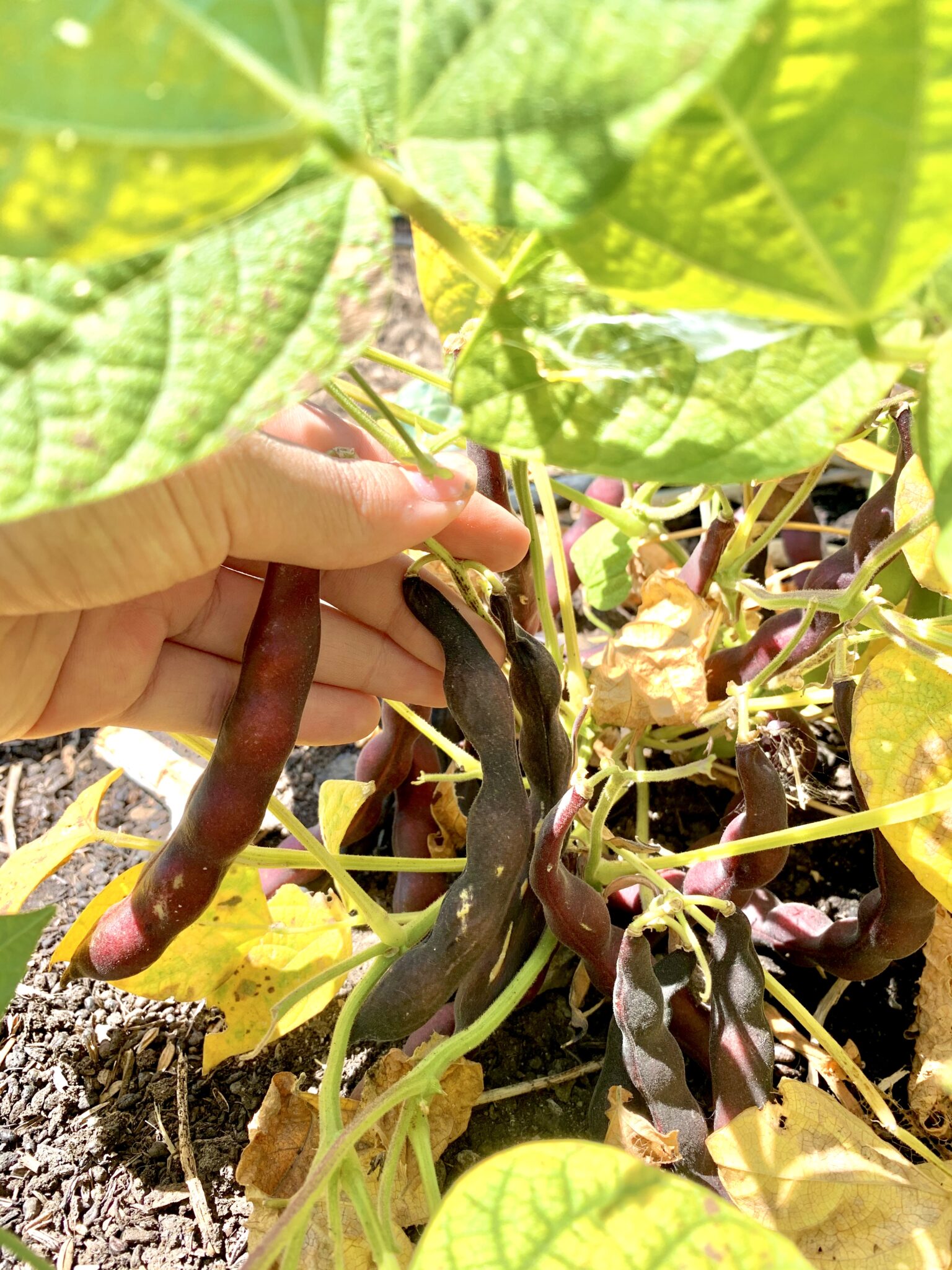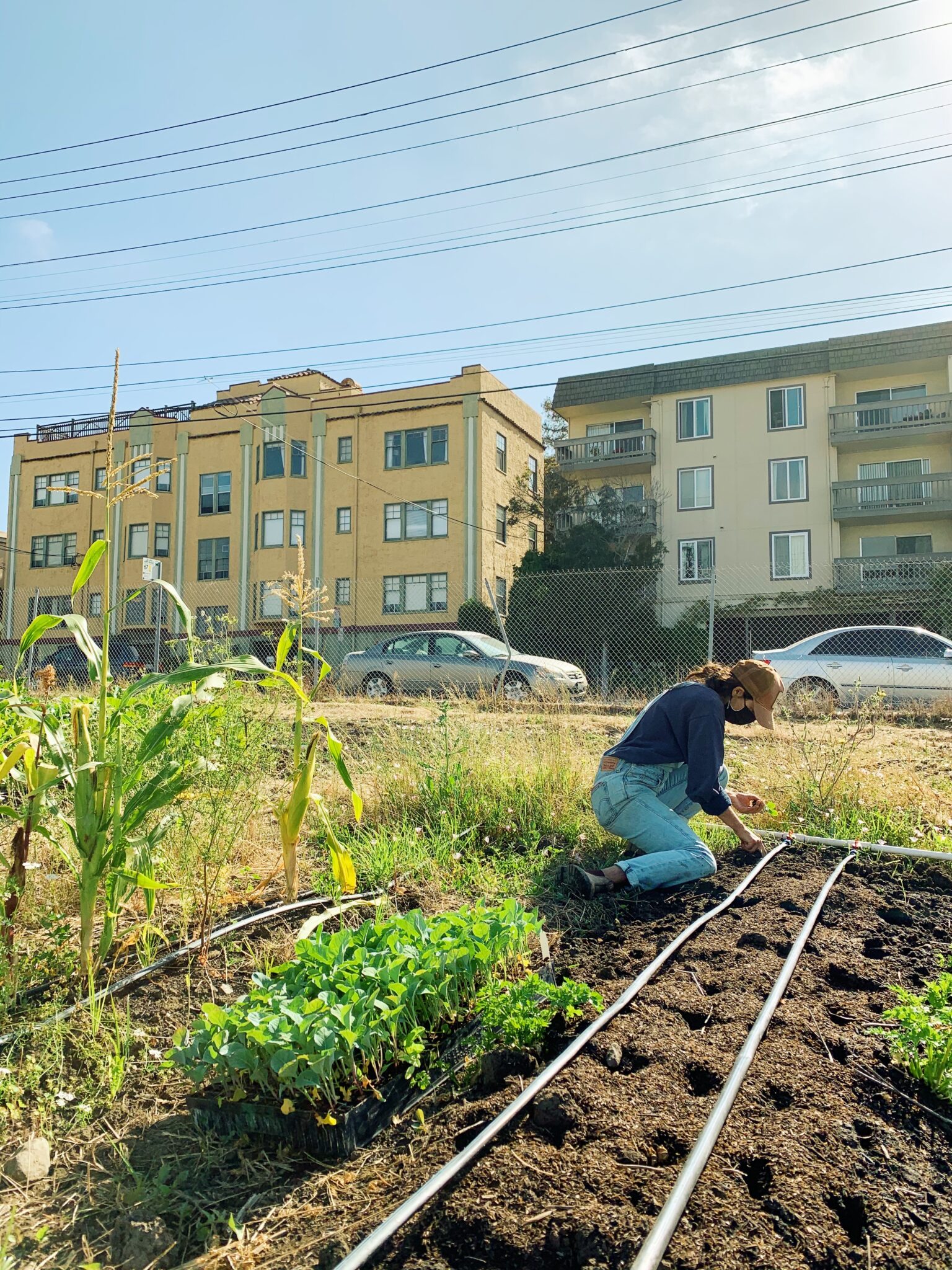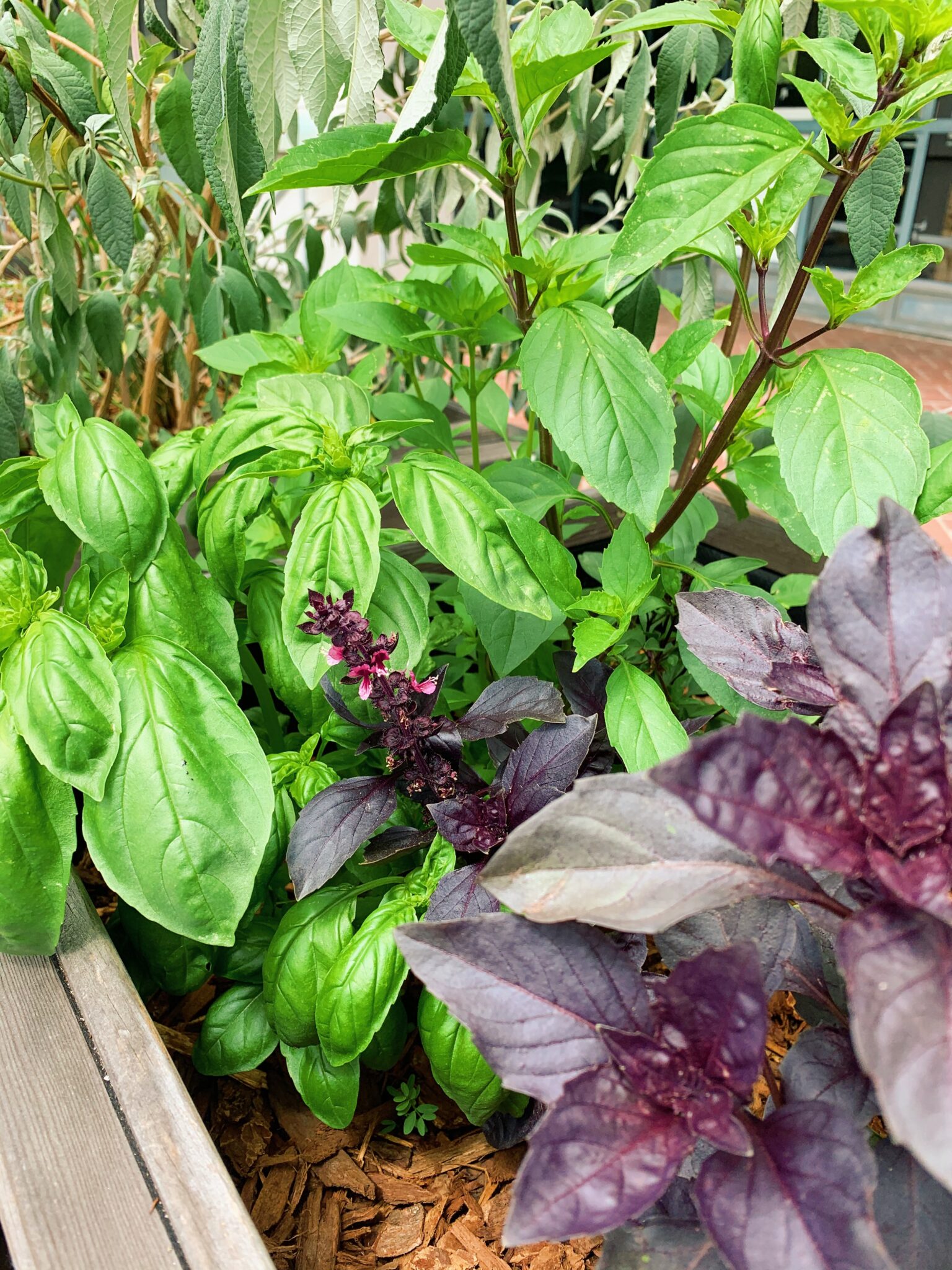Stay up-to-date on campus farms and gardens.
For Students
Campus Gardens
The importance of gardens on our urban campus
UC Berkeley is home to over ten urban gardens that produce food, preserve native ecosystems, increase biodiversity and create cultural and community space. Gardens on campus play a unique role in the landscape of urban agriculture and provide many benefits to our campus community, including:
- Campus gardens create micro-scale food systems that address student food insecurity. (Many of our gardens harvest for the campus food pantry and nutrition and cooking skills programs. Check out the Basic Needs Center for more information.)
- They offer spaces for experiential education and increase food and food systems literacy.
- They provide green space in an otherwise urban landscape.
- They facilitate interdisciplinary research, collaboration, and land use decision making.
- Finally, campus gardens create spaces for all members of our campus community to interact with nature, food, one another, and the urban agriculture movement at large.
Undergraduate and graduate students, with some support from UC Berkeley faculty and staff, are involved in the design, implementation, maintenance, and programming of campus gardens. BFI supports campus gardens with respect to outreach, financial resources, events, and academic opportunities.



Where are UC Berkeley’s gardens?
If you a take a walk through campus, you’re likely to pass at least a few of these green spaces maintained by students and staff. Many of these campus gardens were established by specific groups on campus, such as Housing and Dining Sustainability Advocates, the Hispanic Engineers and Scientists club, and others.
The following map shows locations of each garden on campus.
Get involved with campus gardens
Berkeley Student Farms
The Berkeley Student Farms coalition is a transparent and democratic student-led and community-based organization that prioritizes movement building, meaningful inclusion, and equitable distribution of food, land, and knowledge through collective action and resistance. The coalition utilizes ecological land management to create a network of sites dedicated to anti-oppression and student basic needs, ultimately producing thriving safe spaces for experiential education and food justice in the Bay Area.
Berkeley Student Farms hosts open hours at various campus gardens. On the BSF website and social media, you can find the most updated information on open hours and events. You can also download the BSF calendar to your Google calendar.
Other volunteer or internship opportunities
- Re:wild Your Campus (formerly Herbicide Free Campus) hosts community work days.
- UC Botanical Garden offers various volunteer positions including garden ambassadors, propagators, curation, docent, and more.
- Gill Tract Community Farm holds open volunteer hours and occasionally provides internships, research opportunities or public workshops.
- UC Berkeley Basic Needs Center offers internship opportunities every year that provide support for Basic Needs efforts on campus.
More campus gardens resources
The following guides have been compiled by students and collaborators of the Berkeley Food Institute. These are helpful for new campus gardens or gardeners and for anyone who wants to consider starting a garden at home or visiting gardens on campus and in the local community. These include:
In 2018, BFI collaborated with partners at UC Davis and UC Santa Cruz to expand opportunities for experiential learning in campus farms and gardens. Funded through the UC Global Food Initiative, the three campuses increased programming, improved coordination between garden spaces, and initiated off-campus garden internship programs in local public schools. With representation from UC Davis’ Student Farm, UC Santa Cruz’ Farm and Garden, and UC Berkeley’s network of urban farms and gardens, each partner contributed unique and valuable knowledge. In order to share these learnings more broadly, the team created three toolkits, intended as practical guides for campuses interested in starting and/or expanding similar programs. These include: